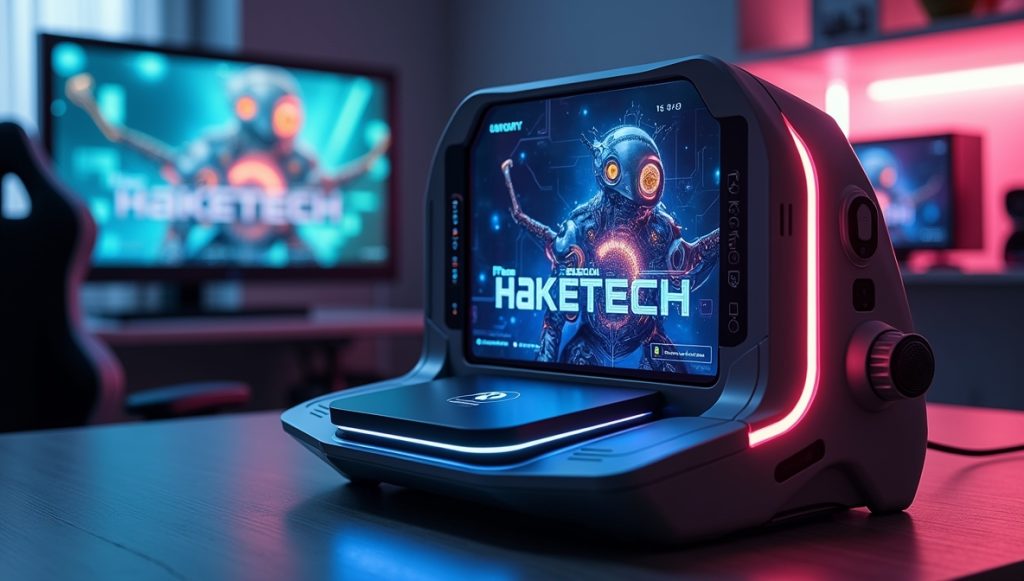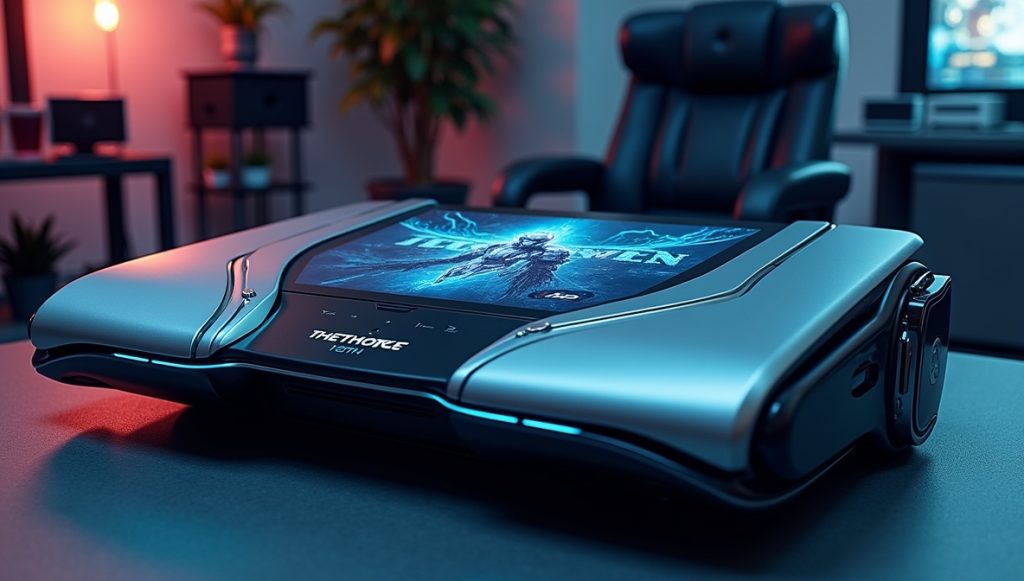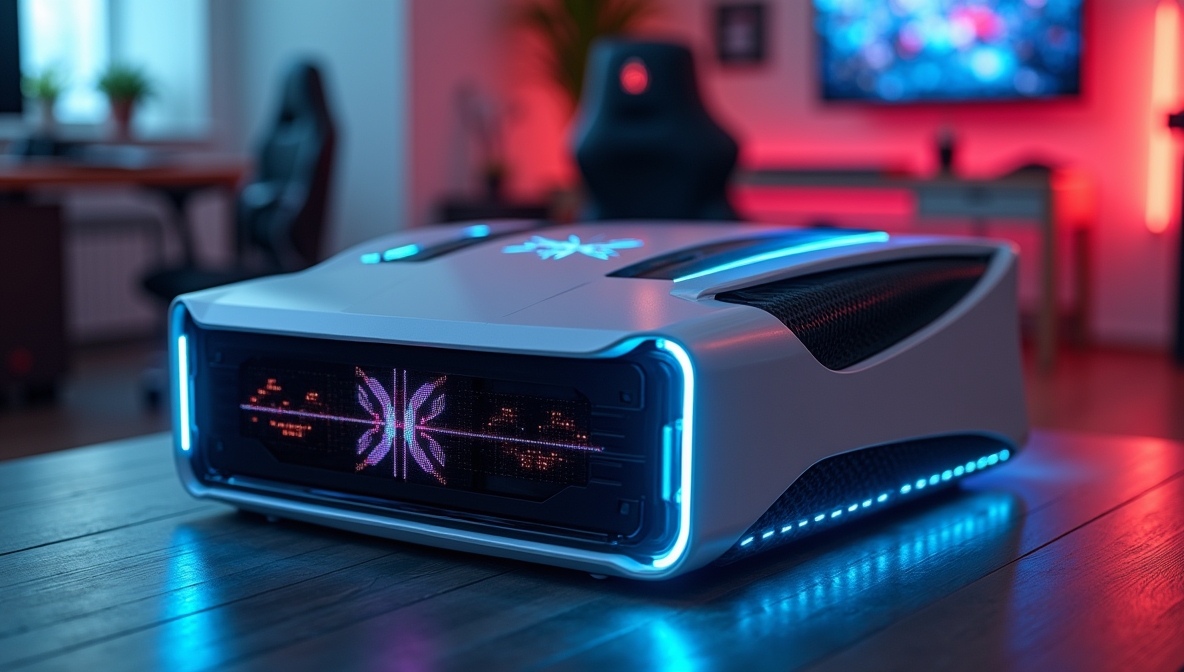Introduction
Gaming has transformed from a niche hobby into one of the largest industries in the world. What began with simple pixelated adventures on arcade machines has now grown into sprawling digital universes, competitive arenas, and immersive experiences that rival blockbuster films. Players of all ages and backgrounds now participate in gaming, creating a global culture built around shared passion, competition, and creativity.
The evolution of gaming hardware plays a central role in this story. Each generation of consoles pushes the boundaries of what is possible, offering faster performance, improved visuals, and innovative features that redefine how games are played. When enthusiasts hear about the release of a new game console thehaketech, for instance, the anticipation reflects not just excitement for a product but also the hope of a leap forward in the way people experience interactive entertainment.
This article explores the world of gaming consoles, the role of innovation, and how the future of gaming continues to inspire both creators and players.
A Brief History of Game Consoles
Understanding where gaming is headed requires a look back at how far it has come.
- The First Generation (1970s) – Simple machines like the Magnavox Odyssey introduced the concept of playing games on a television screen. Gameplay was basic, but the foundation was set.
- The Golden Age (1980s) – Consoles like the Nintendo Entertainment System (NES) and Sega Master System became household staples, offering iconic games that remain beloved today.
- The 1990s Revolution – With consoles such as the PlayStation and Nintendo 64, gaming entered the 3D era. Storytelling, graphics, and gameplay complexity grew rapidly.
- Early 2000s – Systems like the PlayStation 2, Xbox, and GameCube pushed graphics to new levels and introduced online play, connecting gamers worldwide.
- Modern Consoles (2010s–2020s) – Devices like the PlayStation 5, Xbox Series X, and Nintendo Switch now deliver cinematic visuals, portability, and cloud integration.
Each step reflects more than just hardware improvements; it shows the evolving relationship between technology and creativity. That is why excitement builds whenever a new game console thehaketech or any cutting-edge system is announced—it represents not just a product but the next chapter of gaming history.
Why Consoles Matter in a Changing Industry
Some argue that mobile devices and PCs now dominate gaming, but consoles remain uniquely important. They provide standardized hardware, ensuring developers can optimize games for one specific platform. This leads to smoother experiences for players and fewer compatibility issues compared to the diverse landscape of PC hardware.
Consoles also foster community. Local multiplayer, split-screen gaming, and living room setups create social experiences that mobile or PC gaming doesn’t always replicate. Families gather to play party games, friends compete in fighting tournaments, and communities form around exclusive titles.
The new game console thehaketech concept reflects why consoles endure—they combine innovation, simplicity, and accessibility, making them central to gaming culture despite industry changes.
Innovation Driving the Future

The gaming industry thrives on innovation. Each hardware generation introduces features that reshape expectations:
- Graphics and Processing Power – Realistic visuals, detailed environments, and lifelike characters grow with each generation.
- Storage and Speed – Solid-state drives drastically reduce loading times, keeping players immersed.
- Controllers and Input Methods – From motion sensors to adaptive triggers, physical interaction evolves.
- Connectivity – Online multiplayer, digital storefronts, and streaming services extend gaming beyond discs.
- Cross-Platform Play – Barriers between consoles, PCs, and mobile devices are steadily dissolving.
Whenever players hear about a new game console thehaketech, the curiosity lies in which of these areas will be pushed further. Will it offer unprecedented speed? Unique input mechanics? Seamless integration with cloud systems? Innovation remains the heartbeat of the industry.
The Role of Exclusive Games
While hardware draws attention, games ultimately determine success. Exclusive titles often define console generations. For example:
- The Legend of Zelda series has consistently anchored Nintendo systems.
- Sony’s God of War and The Last of Us became cultural milestones.
- Microsoft’s Halo franchise shaped the Xbox identity.
Exclusives serve as incentives, drawing players to one system over another. They also push developers to experiment and create experiences that stand out. With a new game console thehaketech, players wonder not just about technical specifications but about the worlds they will get to explore exclusively on that platform.
Community and Culture Around Gaming
Gaming is not just a solitary activity—it is a culture. From esports tournaments to online streaming, the ways people engage with games have expanded dramatically. Platforms like Twitch and YouTube Gaming have turned players into entertainers, attracting millions of viewers. Esports events now fill stadiums and rival traditional sports in viewership.
The culture also thrives offline. Cosplay conventions, fan art, and collaborative projects showcase the creativity inspired by gaming. Friendships and communities built through gaming often extend beyond the screen, becoming real-life support systems.
When something like a new game console thehaketech arrives, it doesn’t only impact players—it reverberates across the culture. Fans speculate, create content, and share enthusiasm, reinforcing gaming as a global phenomenon.
Accessibility and Inclusivity in Gaming
One of the most important trends in gaming today is inclusivity. Developers and hardware creators are increasingly prioritizing accessibility features so that more people can participate. Innovations include adaptive controllers for players with physical disabilities, customizable subtitles for the hearing impaired, and settings that adjust visual design for those with color blindness.
Diversity in representation is also improving. Games now feature more diverse characters, storylines, and themes that reflect a broader range of human experiences. This inclusivity not only enriches storytelling but also makes gaming more welcoming for new generations of players.
A new game console thehaketech is expected to carry forward these values, offering tools and settings that ensure everyone can experience games fully.
The Economics of Consoles
Behind every console lies a massive economic structure. Gaming is a multibillion-dollar industry, and consoles often serve as gateways to ecosystems where companies profit not only from hardware sales but also from digital games, subscriptions, and in-game purchases.
Subscription services like Xbox Game Pass and PlayStation Plus have redefined business models. Instead of purchasing individual games, players can access vast libraries through monthly payments. This shift mirrors streaming platforms in music and film.
Announcements of products like the new game console thehaketech generate economic ripples as well. Retailers prepare, publishers plan releases, and players begin budgeting. The economic weight of each console generation demonstrates the significance of gaming far beyond entertainment new gaming updates thehaketech.
Gaming as a Form of Art
Beyond business and play, gaming has emerged as a form of art. Games now feature stunning visuals, powerful soundtracks, and narratives that rival literature and cinema. Titles like Journey, Gris, and Red Dead Redemption 2 showcase how games evoke emotion, challenge perceptions, and tell stories in unique interactive ways.
Academic institutions now study gaming as cultural artifacts, examining themes, artistry, and social impact. Museums have even begun showcasing iconic consoles and games as part of human heritage.
A new game console thehaketech represents the canvas upon which future artistic achievements will unfold. The hardware enables artists—game designers, writers, musicians, and programmers—to collaborate in creating experiences that blend art and technology seamlessly.
Challenges Facing the Gaming Industry
Despite its growth, gaming faces challenges:
- Scalping and Shortages – Recent console launches were marred by supply issues and resellers.
- Monetization Concerns – Microtransactions and loot boxes often spark debate about fairness.
- Toxicity in Communities – Online spaces sometimes struggle with harassment and negativity.
- Environmental Impact – Manufacturing and powering consoles raise sustainability questions.
Addressing these issues is crucial for the long-term health of the industry. A responsible launch of a new game console thehaketech would likely consider sustainability, fair access, and community well-being alongside technical innovation.
The Future of Gaming Consoles

Looking ahead, gaming consoles will likely continue to evolve in fascinating ways:
- Cloud Gaming Integration – Streaming high-quality games directly, reducing reliance on hardware power.
- Virtual and Augmented Reality – More immersive experiences merging digital and physical realities.
- AI-Enhanced Play – Smarter non-player characters and personalized game recommendations.
- Seamless Cross-Platform Worlds – Breaking down walls between console, PC, and mobile.
- Sustainable Design – Eco-friendly production and energy-efficient systems.
Whenever a new game console thehaketech is imagined, it sparks curiosity about which of these trends will become reality. Players and creators alike know that the future promises innovation beyond what we can fully envision today.
Conclusion
Gaming has traveled an extraordinary journey, from blocky pixels to immersive universes. At its heart, it remains about creativity, community, and joy. Consoles have consistently shaped this journey, serving as milestones of technological and cultural progress.
When enthusiasts hear about a new game console thehaketech, it symbolizes more than hardware. It represents hope for richer stories, better connections, and innovative experiences. It reflects the excitement of joining a tradition where each new device opens doors to worlds previously unimaginable.
As technology continues to advance, consoles will remain both tools and symbols of the gaming spirit. They are not merely devices; they are gateways to imagination, collaboration, and cultural expression. The future of gaming will undoubtedly surprise us, but its essence—connection through play—will always remain.




